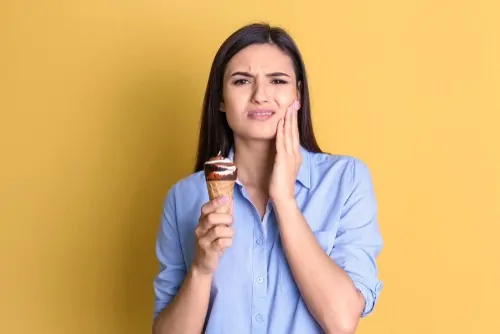
Nearly 40 million American adults have sensitive teeth, according to the Academy of General Dentistry. It’s a very common problem that can keep people from enjoying the hot and cold foods they love. Your dentist in McMinnville understands how frustrating and painful having sensitive teeth can be. But what causes sensitive teeth… and is there anything you can do to reduce tooth sensitivity at home?
Causes of Tooth Sensitivity
There is any number of things that can cause tooth sensitivity, and it’s best to talk with your McMinnville dentist to determine the reason behind any sensitivity you may be experiencing. Some of the most common causes of tooth sensitivity include:
How to Treat Sensitive Teeth
In order to figure out the best way to treat sensitive teeth, schedule an appointment with your dentist in McMinnville. In the meantime, try these at-home tips.
Avoid Trigger Foods
If your tooth sensitivity shows up or gets worse when you eat something hot or cold, try your best to avoid those foods or drinks until you can get treated by your dentist. Acidic foods and drinks can also cause sensitivity to flare up so be careful with things like citrus, wine, and even coffee.
Use a Soft Toothbrush
If your tooth sensitivity is fairly new, you may be able to reduce pain by switching to a soft-bristled toothbrush immediately. In fact, everyone should use a soft-bristled toothbrush to either help with tooth sensitivity or avoid it in the first place.
Try a New Toothpaste
There are a number of different kinds of toothpaste available that are formulated specifically for sensitive teeth. Look for a product that helps with sensitivity and has the American Dental Association Seal of Acceptance.
If you suddenly notice tooth sensitivity, or have been battling with it for some time, schedule an appointment with your dentist. Your dental team can find out what’s causing your sensitivity and recommend the best way to treat it so you can get relief once and for all.